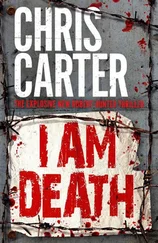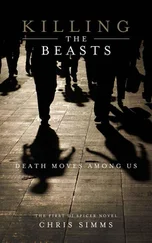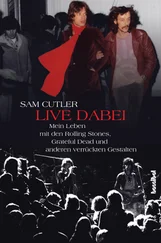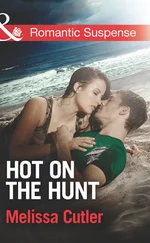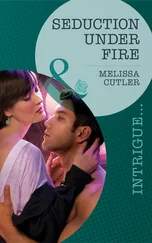Chris Cutler - CASSIBER 1982-1992
Здесь есть возможность читать онлайн «Chris Cutler - CASSIBER 1982-1992» весь текст электронной книги совершенно бесплатно (целиком полную версию без сокращений). В некоторых случаях можно слушать аудио, скачать через торрент в формате fb2 и присутствует краткое содержание. Жанр: Биографии и Мемуары, на английском языке. Описание произведения, (предисловие) а так же отзывы посетителей доступны на портале библиотеки ЛибКат.
- Название:CASSIBER 1982-1992
- Автор:
- Жанр:
- Год:неизвестен
- ISBN:нет данных
- Рейтинг книги:3 / 5. Голосов: 1
-
Избранное:Добавить в избранное
- Отзывы:
-
Ваша оценка:
- 60
- 1
- 2
- 3
- 4
- 5
CASSIBER 1982-1992: краткое содержание, описание и аннотация
Предлагаем к чтению аннотацию, описание, краткое содержание или предисловие (зависит от того, что написал сам автор книги «CASSIBER 1982-1992»). Если вы не нашли необходимую информацию о книге — напишите в комментариях, мы постараемся отыскать её.
CASSIBER 1982-1992 — читать онлайн бесплатно полную книгу (весь текст) целиком
Ниже представлен текст книги, разбитый по страницам. Система сохранения места последней прочитанной страницы, позволяет с удобством читать онлайн бесплатно книгу «CASSIBER 1982-1992», без необходимости каждый раз заново искать на чём Вы остановились. Поставьте закладку, и сможете в любой момент перейти на страницу, на которой закончили чтение.
Интервал:
Закладка:
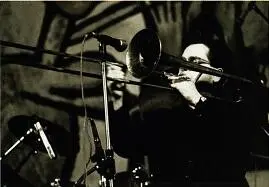
Alfred Harth
No matter how grave the topics tackled in their songs (dictatorship, starvation, fascism, capitalism), Cassiber never seem tempted to indoctrinate or make didactic statements. Instead they worked with bizarre associative collisions, contradictory connotations and discordant messages. Coming from the left, they never shied away from difficult political and cultural issues; however they did approach them in unorthodox ways — using documentary fragments without revealing their contexts or sources, or repeating single words or phrases over and over again, in the manner of the Ingenious Dilettantes [11] Geniale Dilettanten (Ingenious Dilettantes) — 1980s German musical subculture that included, amongst others, Einstiirzende Neubauten, Todliche Doris and Nachdenkliche Wehrpflichtige .
, inviting listeners to draw their own meanings. Text, music, samples, delivery and context often pulled in different directions, causing confusion and opening associative fields through which listeners could roam. Songs such as I was old when I was young [12] Cassiber, A Face We All Know .
exemplify this perfectly. And although they adamantly refused to speak for political movements — “Kein Stellvertreterhaltung, bitte!” [13] “No political proxi posture, please!” A. Harth, Interview with author, Leipzig Jazzfestival, September 1984.
, they constantly used their well-known political orientations as a backdrop against which to pitch a piece: for instance when, in the middle of a concert, Christoph read a text by the leader of the German Neo-fascists, giving no indication of its origin or voicing an opinion; or when two neutral words “ gut — wenn schon ”, through repetition and the use of a documentary voice-recording, begin slowly to reveal a disturbing meaning [14] Cassiber, Gut , in A Face We All Know .
. In fact, nothing the band did could be taken at face value; everything was ambiguous and constantly challenged. Even when, at the end of a concert, Heiner broke emphatically into At last I am free , it was impossible to embrace this happy ending.
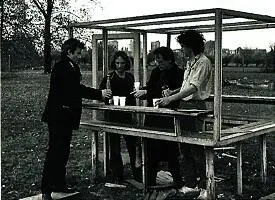
Cassiber in Germany
In 1985, after almost four years of touring and the release of two albums, Alfred left. Without its improvising centre, Cassiber’s aesthetic inevitably changed. “We did not improvise from nothing or develop pieces from improvisation anymore” [15] Cutler, Interview.
. Constructed around Chris’s — and occasionally other authors’ — texts, the compositions grew tighter and were more carefully pre-arranged. Openness and fragmentation, however, still remained central to their practice, now augmented and realised through the added flexibility of two state-of-the-art Mirage samplers — acquired in February 1985. One replaced Christoph’s analogue cassette archive, while the other now allowed Heiner too to work with pre-fabricated fragments. Cassiber’s seven years as a trio (1985-92) and their last two albums ( Perfect Worlds , 1986 and A Face We All Know , 1989) were deeply marked by this new technology.
True to their communicative intent, the group continued to tour across Europe, Russia, North America, Canada and Japan — every now and then returning to East Germany, where their connections gradually grew stronger. Heiner and Chris developed close relationships with the two academics who had first introduced them into the country: Gunter Mayer and Peter Wicke. Heiner began to work with Heiner Muller, and Chris became my Western contact during the years I was curating and organising the concert series Music & Politics (1984-88) — a series that combined experimental musics from various genres in a single event. Over these five years, a number of alternative Western groups and artists — Duck and Cover [16] Duck & Cover (West Germany, England, America. Tom Cora, Chris Cutler, Fred Frith, Heiner Goebbels, Alfred Harth, Dagmar Krause and George Lewis).
, Music for Films [17] Music for Films (England. Lindsay Cooper, with Sally Potter, Georgie Born, Phil Minton, Chris Cutler and Vicky Aspinail).
, Dagmar Krause [18] Krause singt Eisler (England. Dagmar Krause with Jason Osborn and Peader Long).
, Grubenklang Orchestra [19] Grubenklang Orchestra (West Germany. Led by Georg Graewe).
and Kalahari Surfers [20] Kalahari Surfers (South Africa. Warick Swinney, realised with English musicians Tim Hodgkinson and Chris Cutler).
, as well as Cassiber — appeared on the same bill as experimental ensembles and composers from the East, who presented Contemporary music, electroacoustic and acousmatic compositions or Performance pieces. It was at one of these concerts that Cassiber met the East German composer Georg Katzer, who arranged for the group to record their fourth album A Face We All Know at the studio of the Academy of Art, in the heart of East Berlin — the first time, I am sure, that an album had been recorded by a Western Rock band in an East German state studio. The album’s topic — the ramblings of a beleaguered and deranged dictator — was apt, even prophetic, at a time of growing social and political upheaval in the East Block. The short eccentric film footage in this box [21] Uwe Baumgartner, Gerd Kroske, Jurgen Kuttner and Mario Persch, Cassiber , Dezember '88 Berlin, Academy of Art of the GDR, 1989.
— the work of three East Berlin fans — reflects this bizarre situation.
By now, Cassiber was well known by both alternative-minded musicians and audiences in East Germany, and they flocked from all over the country to attend the annual Music & Politics events, leading eventually to the series being placed under a media ban. Despite this, the group’s unconventional musical style influenced a number of alternative East German over- and under-ground bands, notably Der Expander des Fortschritts [22] The Expander des Fortschritts . Avantgarde-Band from East Berlin (1986–1990).
. In the midst of this growing social turmoil, the time was ripe for more unprecedented action, so we embarked on another adventure: organising a six concert tour for Cassiber across East Germany, just days before the wall came down (13–22 October 1989) [23] The tour was managed by Gerhard Busse, who now runs the label No Mans Land Germany.
. The atmosphere at these concerts was explosive and had a truly empowering effect on us.
For me, Cassiber will always be linked to these exciting times, this short period of hope, in which alternative social change actually seemed possible. It gave me the liberating experience of discovering a different understanding of music — and of art in general: my personal gateway into a new aesthetics.
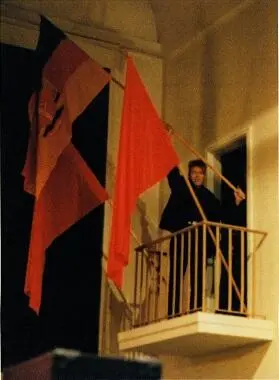
FRANKO FABBRI
Meetings
Franco Fabbri had independent connections with both Chris Cutler (through Henry Cow and Rock in Opposition) and the duo Goebbels/Harth. He proposed and organised the Cassix project in Montepulciano.
Until recently, I was sure I knew the exact date when I met Heiner Goebbels and Alfred Harth. I thought it was February 3rd, 1979, in Munich, at the Olympiakantine , an almost deserted pub in the Olympic Village, where Trikont (the label that published records by the Sogenanntes Linksradikales Blasorchester , and distributed Stormy Six records in Germany) had organized a concert. I had a memory of us (the Stormy Six ) being amazed by the SLB’s joyful and messy (but very competent) musicality, and their fantastic mixture of Zappa, Rota, Eislerand GDR pop songs. But I was wrong: I spoke with Heiner Goebbels last year, and he had no recollection at all of that concert. It must have happened somewhere else. It did happen, definitely, because we became friends, and our cooperative, I'Orchestra , released one of the SLB’s albums in Italy — I remember proof-reading its liner notes while recording Macchina Maccheronica in Kirchberg, Switzerland, in September 1979 — and we organised concerts, both for the big band and for the Goebbels/Harth duo. There are solid proofs, including a number of photos taken in Frankfurt, in Heiner’s flat or walking around with Peter Lieser, another member of the band. The SLB’s concert in Milan was an important event in our history (both for Stormy Six and I’Orchestra ). The local government had promised support for the concert, and then suddenly retired it after rumours were circulated that the Blasorchester was related to German “terrorists”. The SLB had taken part in a rally supporting the Baader-Meinhof group’s lawyers, who had been arrested, and that was enough for right wing Milanese politicians to qualify the concert as a ‘danger to democracy’. In the wake of the big political change that affected Italy in the early Eighties, it was the beginning of the end for I’Orchestra as a cultural institution in Milan, and for Stormy Six as a group that could survive without the support of a commercial record company. But, as a concert, it was a great success.
Читать дальшеИнтервал:
Закладка:
Похожие книги на «CASSIBER 1982-1992»
Представляем Вашему вниманию похожие книги на «CASSIBER 1982-1992» списком для выбора. Мы отобрали схожую по названию и смыслу литературу в надежде предоставить читателям больше вариантов отыскать новые, интересные, ещё непрочитанные произведения.
Обсуждение, отзывы о книге «CASSIBER 1982-1992» и просто собственные мнения читателей. Оставьте ваши комментарии, напишите, что Вы думаете о произведении, его смысле или главных героях. Укажите что конкретно понравилось, а что нет, и почему Вы так считаете.

